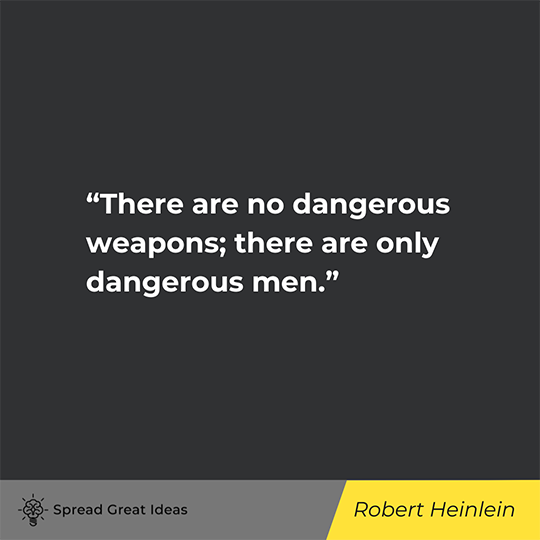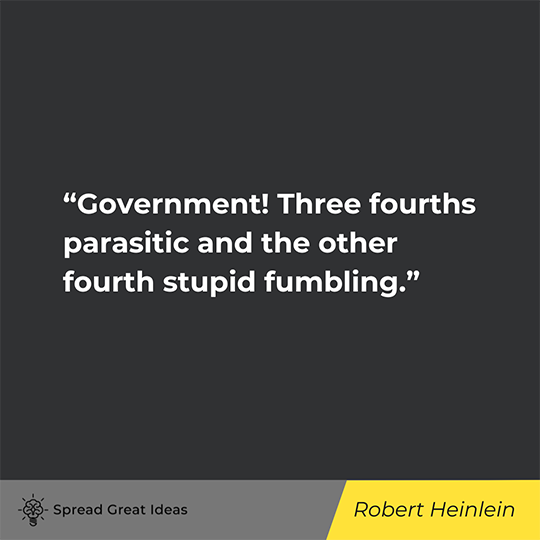Table of Contents
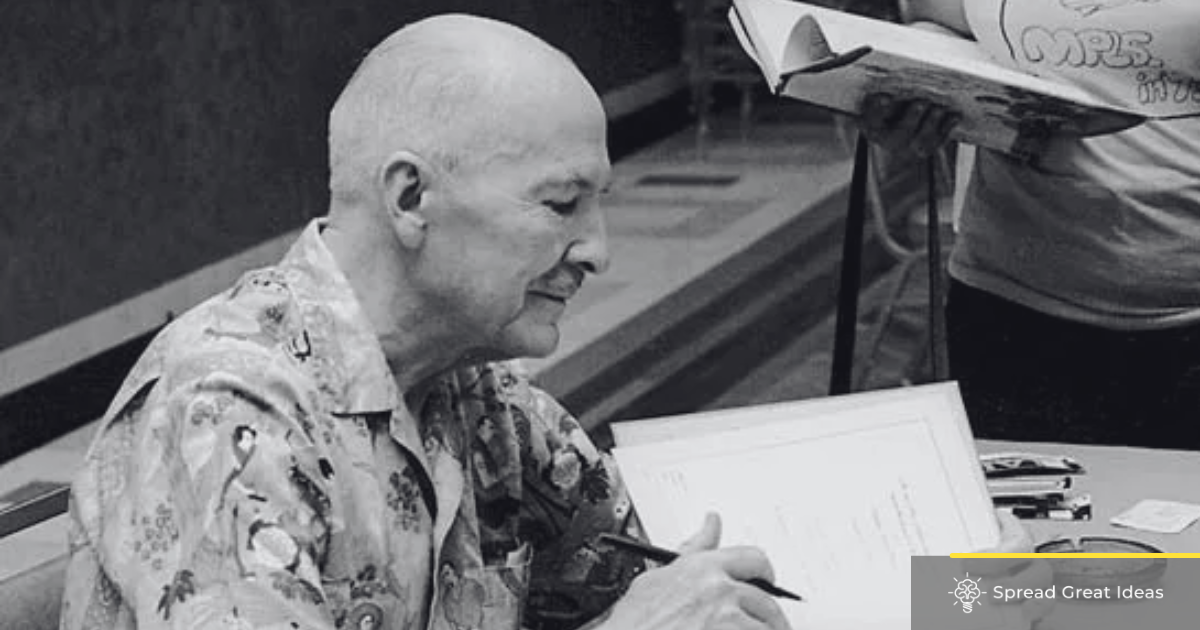
Alongside Isaac Asimov and Arthur C. Clarke, Robert A. Heinlein represents the third of the “Big Three” science fiction authors. While his genre is arguably best known for far-fetched contrivances and other elements that would look right at home in a fantasy novel, Heinlein is revered for pioneering the “hard” science fiction subgenre that puts logic and scientific accuracy in the front seat.
Heinlein was born in Butler, Missouri in 1907. His family took pride in having sent a man to every American war dating right back to the original. While young Heinlein loved astronomy and literature, his aspiration had always been to join the United States Navy. Unfortunately his older brother’s enrollment at the United States Naval Academy prevented Heinlein from attending at the same time, but he was finally admitted in 1925.
Heinlein studied engineering at naval academy, and continued on to work in radio communications aboard the then state-of-the-art aircraft carrier USS Lexington. Afterward he served as a gunnery officer aboard the destroyer USS Roper, another highly technical role that would color his later fictive work.
Pulmonary tuberculosis ended Heinlein’s naval career prematurely in 1934. He proceeded to work in real estate, silver mining, and Upton Sinclair’s socialist End Poverty in California movement. Heinlein finally ran as a Democrat for the California State Assembly. Following his defeat he turned to writing as his main source of income – which proved a wise move.
Heinlein wrote “Life-Line” to enter in a contest held by Astounding Science Fiction, but wound up selling it to the magazine for far more than the grand prize payout. The novelist went on to publish several critically acclaimed best sellers including The Moon is a Harsh Mistress, Stranger in a Strange Land, Double Star, and Citizen of the Galaxy, although thanks to its 1997 film adaptation his best known work shall always be Starship Troopers. (It is interesting to note that Starship Troopers the novel contained none of the satirical treatment of fascism and war propaganda – these were the filmmakers’ additions.)
Heinlein held a broad range of political and philosophical views. Attempting to glean all of them from his writing is difficult, as his views shifted throughout the course of his lifetime and he contradicted himself on occasion. In his article “Robert Heinlein at 100,” Brian Doherty describes Heinlein’s worldview thusly:
That iconoclastic vision is at the heart of Heinlein, science fiction, libertarianism, and America. Heinlein imagined how everything about the human world, from our sexual mores to our religion to our automobiles to our government to our plans for cultural survival, might be flawed, even fatally so.
While his politics evolved from liberal to increasingly conservative over the course of his lifetime, Heinlein always considered himself a radical libertarian. His futuristic adventures often emphasized the necessity of individualism, and his themes of personal freedom and free thought have found a common audience among hippies and staunch libertarians alike.
We also have Heinlein to thank for the epithet “moonbat.”
Heinlein Quotes
– Robert Heinlein

“Whether the authorities be invaders or merely local tyrants, the effect of such [gun control] laws is to place the individual at the mercy of the state, unable to resist.”
– Robert Heinlein

“I am free, no matter what rules surround me. If I find them tolerable, I tolerate them; if I find them too obnoxious, I break them. I am free because I know that I alone am morally responsible for everything I do.”
– Robert Heinlein
“A prude is a person who thinks that his own rules of propriety are natural laws.”
– Robert Heinlein

“Don’t handicap your children by making their lives easy.”
– Robert Heinlein

“You can have peace. Or you can have freedom. Don’t ever count on having both at once.”
– Robert Heinlein

“There is no worse tyranny than to force a man.”
– Robert Heinlein
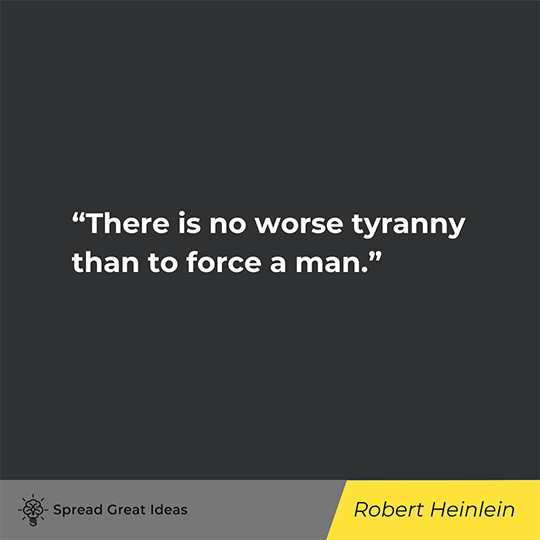
“A dying culture invariably exhibits personal rudeness. Bad manners. Lack of consideration for others in minor matters. A loss of politeness, of gentle manners, is more significant than is a riot.”
– Robert Heinlein
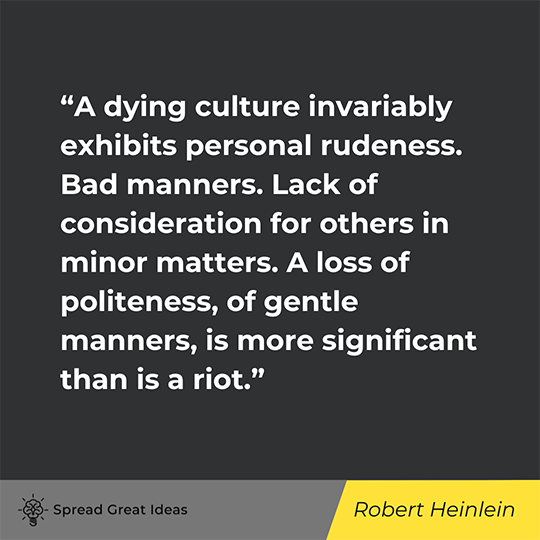
“Duty is a debt you owe to yourself to fulfill obligations you have assumed voluntarily. Paying that debt can entail anything from years of patient work to instant willingness to die. Difficult it may be, but the reward is self-respect.”
– Robert Heinlein
“Almost any sect, cult, or religion will legislate its creed into law if it acquires the political power to do so.”
– Robert Heinlein
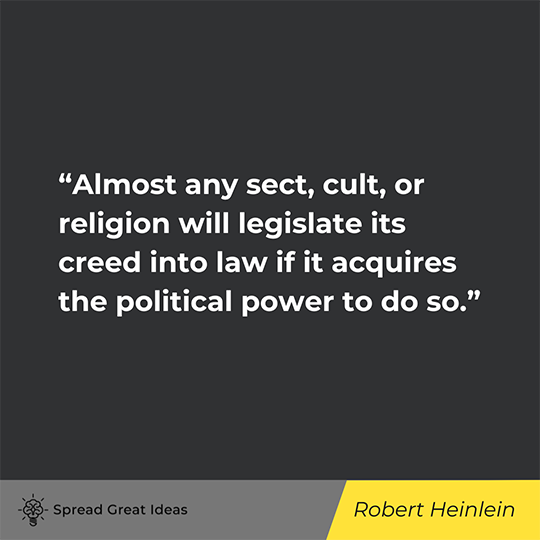
“There are no dangerous weapons; there are only dangerous men.”
– Robert Heinlein
Stranger in a Strange Land Quotes
– Stranger in a Strange Land by Robert Heinlein

“Secrecy begets tyranny.”
– Stranger in a Strange Land by Robert Heinlein

“But goodness alone is never enough. A hard, cold wisdom is required for goodness to accomplish good. Goodness without wisdom always accomplishes evil.”
– Stranger in a Strange Land by Robert Heinlein

“If you’ve got the truth you can demonstrate it. Talking doesn’t prove it.”
– Stranger in a Strange Land by Robert Heinlein

“I never do anything I don’t want to do. Nor does anyone, but in my case I am always aware of it.”
– Stranger in a Strange Land by Robert Heinlein

“Most neuroses and some psychoses can be traced to the unnecessary and unhealthy habit of daily wallowing in the troubles and sins of five billion strangers.”
– Stranger in a Strange Land by Robert Heinlein
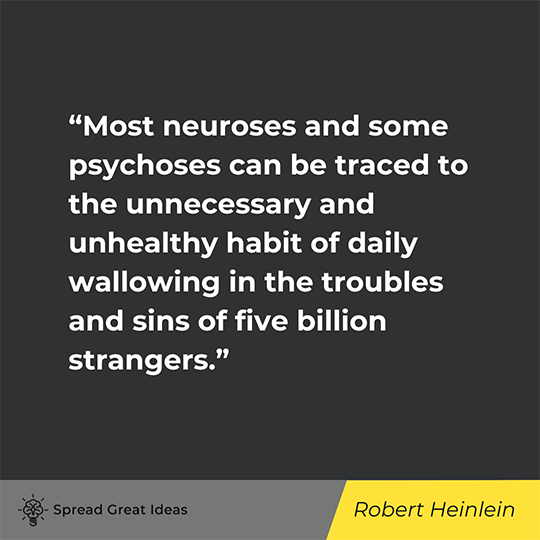
“Its very variety, subtlety, and utterly irrational, idiomatic complexity makes it possible to say things in English which simply cannot be said in any other language.”
– Stranger in a Strange Land by Robert Heinlein

“He’s an honest politician – he stays bought.”
– Stranger in a Strange Land by Robert Heinlein

“Faith strikes me as intellectual laziness.”
– Stranger in a Strange Land by Robert Heinlein
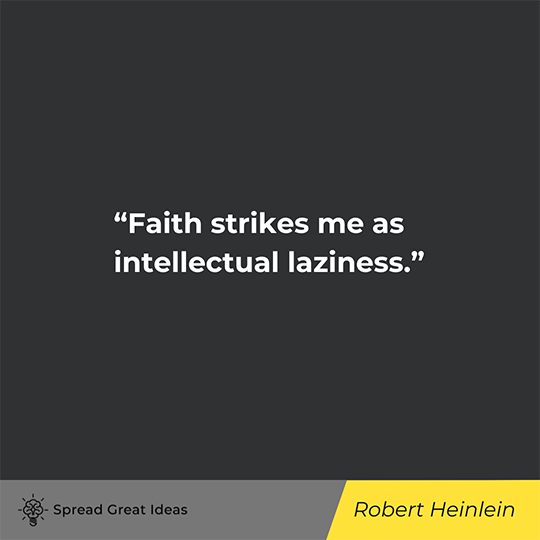
“Government! Three fourths parasitic and the other fourth stupid fumbling.”
– Stranger in a Strange Land by Robert Heinlein
Robert Heinlein Quotes Specialization
– Robert Heinlein
Robert Heinlein Quotes Celebrities
– Robert Heinlein
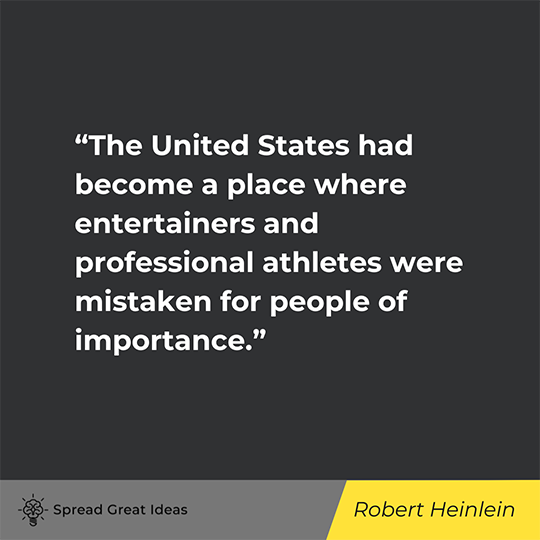
Future Quotes: Maintaining Optimism and Fostering Innovation
If popular culture indicates anything, it’s how dramatically our perception of the future has changed over the past hundred years. It used to be that people imagined we would one…
